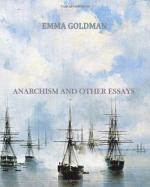|
This section contains 9,678 words (approx. 33 pages at 300 words per page) |

|
SOURCE: “Kropotkin: Mutual Aid and Anarchy,” in Demanding the Impossible? Human Nature and Politics in Nineteenth-Century Social Anarchism, Cassell, 1997, pp. 125-79.
In the following excerpt, Morland analyzes Kropotkin's theory of anarchism.
Of all the classical anarchists it is perhaps Kropotkin who corresponds most closely to informed perceptions of anarchism. Martin Miller, for example, has described him ‘as the world's leading anarchist theoretician.’1 Certainly, when compared to Proudhon and Bakunin, there are fewer doubts associated with the standing or status of Kropotkin as an anarchist. Nevertheless, doubts persist and there are strong grounds for contesting the consistency of Kropotkin's anarchist ideology. Although all three social anarchists under review endorse a conception of human nature that is comprised of both sociability and egoism, the emphasis on egoism in Proudhon and Bakunin, and its associated difficulties, renders it on occasion truly problematical to conceive of either as truly anarchist. Seemingly, Kropotkin's...
|
This section contains 9,678 words (approx. 33 pages at 300 words per page) |

|


